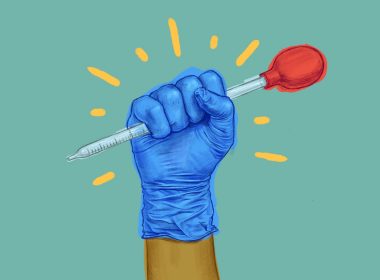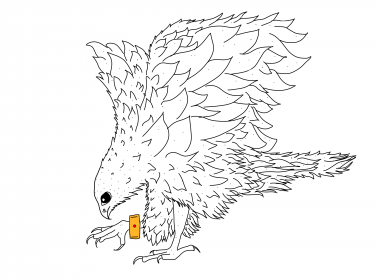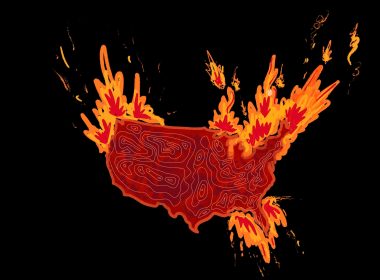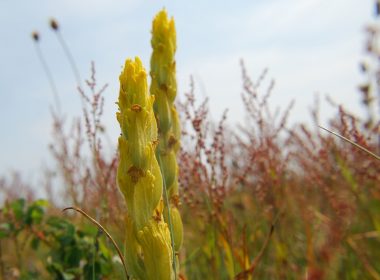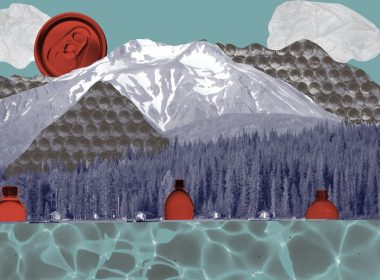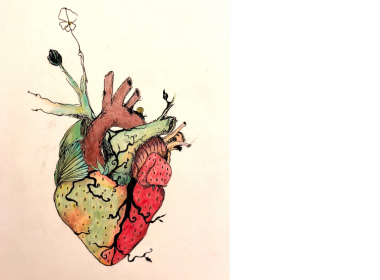Despite the important equity work done by various organizations, Black people continue to be underrepresented in STEM fields and academia. In honour of Black History Month, The McGill Tribune spoke to five up-and-coming Black researchers in a variety of scientific disciplines. Dr. Myrna Lashley Dr. Myrna Lashley is an associate professor[Read More…]
Posts by Madison McLauchlan
Science education cannot exist in a vacuum
Picture this: In the middle of an auditorium filled with students, a professor describes the process of chromosomal segregation. This professor teaches the students about the stages of cell division, the proteins involved, and what happens when chromosomes do not separate properly; a person can have either XX or XY[Read More…]
Tracking devices are revolutionizing the study of remote wildlife
The movement patterns of migratory birds, especially those that travel vast distances, are often hard to track. This makes these species difficult to locate in the wild and even harder to study. Biologging, which involves attaching tiny tracking instruments onto animals to observe their location and behaviour, has emerged at[Read More…]
New study highlights differences in vaccination policies worldwide
Vaccination is arguably the most successful public health tool ever developed, virtually eliminating diseases like smallpox and polio from the viral landscape. The current COVID-19 public health crisis has pushed vaccine research efforts into overdrive, as scientists race to find multiple different formulas to grant the world immunity. However, the[Read More…]
Exploring the linguistic mosaics of Montreal bilingual speakers
Montreal is a one-of-a-kind city for several reasons: It has a vibrant nightlife, an incredibly rich history, and an amalgamation of diverse cultures. Yet, nothing in Montreal is as iconic as the role of language in shaping the city’s unique culture. As most Montrealers speak both French and English, casual[Read More…]
Revealing the burning truth about droughts and heatwaves
Throughout the 1930s, horrific dust storms swept through Western North American, eviscerating agricultural fields and leaving the livelihoods of millions of underprepared farmers in peril. This period, known as the Dust Bowl, was characterized by severe drought and wind erosion. Since then, scientific advances have helped farmers develop more resilient[Read More…]
Living on the edge: Protecting endangered plant species in the Canadian North
From the boreal forests of Newfoundland to the majestic Douglas firs of British Columbia, Canada boasts some of the most astounding plant life the world has to offer. Yet, Canada’s flora are becoming increasingly threatened by climate and land-use change. Conservation biology is an important area of scientific research that[Read More…]
Gene therapy provides a potential breakthrough in brain cancer treatment
In the fight against cancer, scientists have long grappled with the ambiguous nature of stem cells. Glioblastoma tumours, the most aggressive form of brain cancer in adults, consist of these cells, which have the notable ability to self-renew. This makes these tumours notoriously hard to treat with targeted radiation therapy[Read More…]
Global study exposes the disproportionate impact of pollution on Indigenous Peoples
Indigenous communities all over the world, from the Cree of Waskaganish to the Sámi of Sápmi, differ greatly in language, history, and culture. However different they are from each other, a common belief that informs the traditional practices of many Indigenous Peoples is the interconnectedness of humans, animals, and the[Read More…]
Patching holes in broken hearts
In the complex circulatory system of the human body, no artery is as vital as the aorta. This large vessel takes oxygen-rich blood from the chambers of the heart and delivers it to the brain, muscles, digestive system, and other sites of metabolism in the body. Aortic aneurysms, one of[Read More…]


